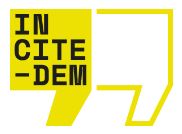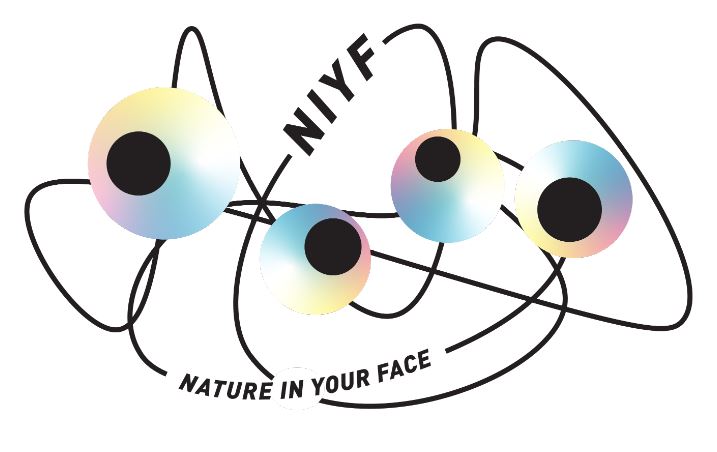Citizens, Environment and Safety – Department of psychology
Citizens, Environment and Safety (CES)
The research group Citizens, environment and safety is interested in the relation between citizens and consumers and the environment, as well as human factors influencing safety-related behaviour.
We study research questions such as:
- What are drivers and barriers regarding the environmental behaviour of citizens?
- How can organizational psychology and human factors be used to improve safety, performance, and well-being?
- What explains traffic behaviour and how can negative impacts on people and the environment be reduced?
- Which human factors influence the effectiveness and sustainability of environmental and safety policies?
The group leads and participates in a larger number of national and international research projects in the areas of energy behaviour, climate communication, virtual reality as a means to enhance safety culture and risk control, environmental investments, environmental and climate policy support, citizen engagement, and empowerment.
Current projects

AdvanCing behavioural Change Through an INclusive Green deal research behaviour and social practices aimed at involving and improving the conditions of vulnerable groups in the Ecological Transition and the EU Green Deal.
Involved members: Kenneth Vilhelmsen, Franziska Gehlmann, Giuseppe Masini, Erica Löfström, Christian Klöckner
ACCTING
Involved members: Yechennan Peng, Christian Klöckner
Involved members: Christian Klöckner

Circular Economy Modelling for Climate Change Mitigation is an interdisciplinary research project to develop a new generation of advanced models and model-based scenarios that can analyze the impact of future material use along with the contribution of various CE strategies and policies on GHG emission mitigation. Our role in the project is to develop a measurement framework survey tool to assess the consumer behaviour related to the CE.
Involved members: Altamash Bashir, Christian Klöckner
CircoMod

Inclusive Citizenship in a World in Transformation: Co-Designing for Democracy
Involved members: Erica Löfström, Christian Klöckner
Which narratives of sustainability can inspire people in their respective roles within society (e.g., as privileged or disadvantaged individuals, politicians, administrators, managers) to be part of the necessary radical socio-ecological change? Our aim in this project is to investigate the corresponding psychological processes that foster or hinder pro-ecological behaviours.
Involved members: Parissa Chokrai, Christian Klöckner
Narrating Sustainability

Citizen engagement in the energy transition. This project is about climate activism. It investigates how current and former activists experience the process of engagement: what makes some people stay engaged long-term while others quit, and how the engagement influences one’s emotions related to climate change.
Involved members: Britta Eklöf, Åshild Røen, Christian Klöckner
Investigating mobility transition in Norway. The role of citizens in the transition of the transportation system. This project examines how psychological parameters are associated with the adoption of mobility innovations in Norway.
Involved members: Milad Mehdizadeh, Pardis S. Yegai, Trond Nordfjærn, Christian Klöckner
Gamification of a museum biodiversity exhibit, focusing specifically on fostering knowledge, empathy and understanding of how local species interact.
Involved members: Kristoffer Fjællingsdal, Isabel Richter
Nøkling i Knipe

Sustainable Consumer Engagement and Demand Response
Involved members: Stepan Vesely, Christian Klöckner
In this NFR-funded project, we develop and test a comprehensive socio-psychological theory explaining pro-environmental behavior spillover (i.e., how the enactment of one pro-environmental behavior may trigger further behavioral changes).
Involved members: Ragnheidur Torfadottir, Gloria Amaris, Stepan Vesely, Christian Klöckner, Heather B. Trulove, Ellen van der Werff, John Thøgersen
Contact: Stepan Vesely
Spillover
«Sweet Spot» project to solve marine plastic pollution in Norway:
The Sweet Spot project is an interdisciplinary collaboration to identify the primary sources and hot-spot areas of plastic pollution in Norwegian waters and to investigate transformative solutions to the marine plastic problem. The science of machine learning, artificial intelligence, laboratory analysis, behavioural change, supply chain management and business model research will be integrated with the active involvement of local and regional actors.
Involved members: Natalya Amirova, Isabel Richter
Sweet Spot project
Involved members: Stepan Vesely, Erica Löfström, Christian Klöckner
Completed projects
Drivers | CAMPAIGNers | Climart
Climate Change Emotions | ECHOES
ENCHANT | ENTRANCES | Protein2.0
S-MOB | SMARTEES | World of Wild Water
Find us:
Members of research group
-
Gloria Estefany Amaris Castro Researcher
gloria.amaris@ntnu.no Department of Psychology -
Natalya Amirova PhD Candidate | «Sweet Spot» project to solve marine plastic pollution in Norway
natalya.amirova@ntnu.no Department of Psychology -
Mari Reitstøen Arnesen PhD Candidate
mari.reitstoen@ntnu.no Department of Psychology -
Altamash Bashir
altamash.bashir@ntnu.no -
Parissa Chokrai PhD Candidate
parissa.chokrai@ntnu.no Department of Psychology -
Chrysi Danelaki PhD Candidate
chrysi.danelaki@ntnu.no Department of Psychology -
Britta Eklöf PhD student
britta.eklof@ntnu.no -
Franziska Gehlmann PhD student
franziska.gehlmann@ntnu.no -
Amanda Elizabeth Lai PhD student
+47-73412656 +4740758436 amanda.lai@ntnu.no -
Sigurd Hilmo Lundheim
sigurd.h.lundheim@ntnu.no Department of Sociology and Political Science -
Erica Margareta C E Löfström Assistant Professor
+4747668766 erica.lofstrom@ntnu.no Department of Design -
Tanya Mangion PhD Candidate
tanya.mangion@ntnu.no Department of Computer Science -
Mehmet Mehmetoglu Professor
+47-73597497 mehmet.mehmetoglu@ntnu.no Department of Psychology -
Trond Nordfjærn Professor
+47-73592345 trond.nordfjarn@ntnu.no Department of Psychology -
Giuseppe Pellegrini Masini Associate professor of social studies
giuseppe.p.masini@ntnu.no Department of Teacher Education -
Yechennan Peng
yechennan.peng@ntnu.no Department of Psychology -
Åshild Røen PhD Candidate
ashild.roen@ntnu.no Department of Psychology -
Ragnheidur Torfadottir PhD Candidate
r.torfadottir@ntnu.no Department of Psychology -
Sari Verachtert Postdoctoral Fellow
sari.verachtert@ntnu.no Department of Psychology -
Stepan Vesely Senior Researcher
stepan.vesely@ntnu.no Department of Psychology -
Kenneth Vilhelmsen
k.vilhelmsen.81@gmail.com Department of Psychology -
Pardis Yegai PhD Candidate
pardis.s.yegaei@ntnu.no Department of Psychology








